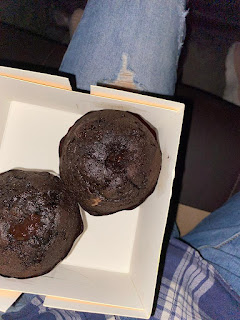Got a meeting the next day and broke up with your partner but all you can think about is that packet of chips lying in the back of your kitchen cabinet. You are not the only one. It is very common to eat away emotions.
We eat not just to satisfy our hunger but to feel better, comfortable, and rewarding. and of course, you won't get a salad after emotional betrayal from friends when a pint of ice cream can do wonders.
Emotional eating is using food to make yourself feel better—to fill emotional needs, rather than your stomach. Unfortunately, emotional eating doesn’t fix emotional problems. In fact, it usually makes you feel worse. Afterward, not only does the original emotional issue remain, but you also feel guilty for overeating.
- PHYSICAL HUNGER
- It develops slowly over time.
- Desire to eat all food groups.
- Feeling the sensation of fullness and a cue to stop eating.
- No negative feelings about food.
- EMOTIONAL HUNGER
- Comes abruptly
- Craving for a certain food type.
- Binge on food and no sensation of fullness
- Guilt after eating.
CAUSES OF EMOTIONAL EATING
- FAD DIETS- Restrictive eating is the biggest trigger for emotional eating. Forcefully, Completely eliminating certain food groups from the diet will make the cravings even stronger. If you are so much into junk and fatty food try reducing it and eating in balance rather than completely eliminating it, this will reduce the chances of binge episodes.
- SEASONAL STRESSORS- Cold seasons, festivals, and family gatherings can be a huge episode for binge eating.
-LONELINESS- At times, being alone with no one around to talk to gives a feeling of detachment and food is what provides comfort in those times, food is like a knight in the shining armor that those times.
- CHILDHOOD HABITS- Were you the type of child who was awarded ice cream and pizza for good behavior and grades? These habits often stay with us throughout life. At times, food brings back memories and drives in the feeling of nostalgia.
-STUFFING EMOTIONS- Eating can be a way to temporarily silence or “stuff down” uncomfortable emotions, including anger, fear, sadness, anxiety, loneliness, resentment, and shame. While you’re numbing yourself with food, you can avoid the difficult emotions you’d rather not feel.
WHY EMOTIONAL EATING?
Numerous studies — granted, many of them in animals — have shown that physical or emotional distress increases the intake of food high in fat, sugar, or both. High cortisol levels, in combination with high insulin levels, may be responsible. Other research suggests that ghrelin, a "hunger hormone," may have a role. Research has shown that sugar, like heroin or cocaine, can cause the feel-good chemical dopamine to flood the nucleus accumbens, the part of the brain responsible for pleasure and reward. Sugar can also release endogenous opioids, the body’s natural painkillers, which creates a pleasant effect. It simply masks up those nasty emotions.
Studies also show a variation according to gender, while comparing the stress-food relationship between men and women it was found that women are more likely to turn towards food when stressed whereas men prefer alcohol and smoke.
HOW TO COPE WITH IT?
Dealing with hormones is difficult but not impossible. There are some small steps that can be taken to contour this issue.
MEDITATION- Meditation cancels out stress and provides a new way to life. Meditation may also help people become more mindful of food choices. With practice, a person may be able to pay better attention to the impulse to grab a fat- and sugar-loaded comfort food and inhibit the impulse.
EXERCISE- This one is my favorite. Nothing beats stress and anxiety like a workout. Yoga has elements of both exercise and meditation, it is, therefore, the perfect way to calm your muscles during rough days.
ALTERNATE ACTIVITIES- Think of alternate activities that you can do instead of eating. Look over your Netflix and watch a movie, call your friends. read a book, go for a walk, take a shower or get a massage. These all will help take off your mind from the disturbing activities happening all around.
Still, having trouble? Try reaching for healthy snacks, like fresh fruit or vegetables, plain popcorn, and other low-fat, low-calorie foods.
KICK SOME FOOD ITEMS OUT OF YOUR HOUSE - Well, the intensity of craving increases when you know you can get it easily. Take two situations; one in which you feel sad and reach your freezer filled with a huge box of ice cream and the second one being where you are sad but have no junk at home to load in and to have a packet of chips you will have to rush to the store. Which situation is more likely to indulge you in emotional eating? The first one, right? So, avoid storing unhealthy snacks at home to reduce this phenomenon.
Feed your feelings because they need something, but don't let it be food. Feed it with positivity and exercise rather than ice cream and chips.
XOXO
Kikki<3


So incredibly written.❤️
ReplyDeleteVery well written. Needed this😅
ReplyDelete